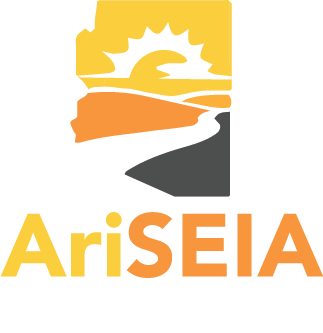|
Arizona Corporation Commission
1200 W Washington St. Phoenix, AZ 85007 RE: Proposed Changes to the Public Comment Process, Docket No. AU-00000A-16-0141 Chairman O’Connor and Commissioners: Please consider the following comments on the Arizona Corporation Commission’s (ACC) pursuit of modifying how it considers public comment and implements a version of Robert’s Rules of Order for Thursday’s Staff Open Meeting. We wish to express our concern about the Commission’s vote during the May 1st Staff Open Meeting to keep these proposed changes private and away from public viewing. While keeping sensitive information confidential is reasonable, shielding proposed rule changes or procedures that will determine how everyday Arizonans participate at the Commission is not. We recognize that the proposed changes are meant to guide the operations of the ACC. However, that operation has a compelling public interest, and the document should be widely available. The commissioners are elected, and the ACC is considered a public agency for purposes of the public records law, open meeting law, and other provisions intended to ensure transparency and accountability. The ACC must allow meaningful opportunities for public comment. Not doing so would run contrary to the ACC's mission and leave commissioners to hear overwhelmingly from those monopolies it is charged to regulate. Those monopolies have disproportionate resources to lobby the ACC, and public comment is a critical counterbalance. Considering these concerns, we offer feedback on the proposed rule changes released upon a public records request below: Rule 2. Requiring that people register in advance to provide public comment will severely limit participation by everyday Arizonans, everyday ratepayers, who are most affected by the ACC's decisions. It is challenging enough already for them to participate in these processes, but this would make it even more so. Sometimes people do not know if they can get time off work ahead of time. They may only understand how an item affects them once they hear more about it. Frequently, last-minute amendments can alter agenda items and significantly change a proposal; individuals may want to respond to that as well. Rule 3. As nonprofits, some of which have a significant membership base, we represent individual ratepayers, people who cannot otherwise be at the ACC, whose voices would not be heard if we did not speak up for them. Curtailing our participation and our opportunity to address important issues before the ACC will also silence their voices. It is inappropriate to require various stakeholders or individual entities, such as nonprofits, to designate a spokesperson. Different organizations cannot speak for each other and, even if they were, the ACC needs to hear various perspectives on the issues before it, even if the recommendations are consistent. Requiring the designation of a spokesperson devalues individual experiences and perspectives and further disadvantages those that disagree with the utilities, which have far more power and resources in these matters. Rule 4. Public commenters should be granted a minimum of three minutes to speak. Again, there should not be a deadline to sign up to speak as long as the item has not been concluded, and as the rule is drafted now, the public comment period could be shorter than three minutes. Time limits should only be utilized when necessary due to the significant length of an agenda item. Otherwise, this rule only serves to limit public voices. Rule 6. Further, no public comment should ever be limited to one minute. That is not a meaningful amount of time to convey important and often complex information. See our comments above on Rule 2, as well. Rule 7. As long as an individual wishes to comment and the item has not concluded (i.e., voted on or completed and the next item is called), those who wish to speak but have not been afforded their three minutes should be permitted to speak. Talking to ACC staff should also not be prohibited. Staff represent the ACC as stakeholders in various proceedings, and communication should be encouraged among stakeholders not limited. As has been discussed at several meetings, Staff also need more resources and capacity. Commissioners have mentioned the number of empty positions multiple times. Therefore, stakeholders should be able to engage with Staff should there be an inadvertent error or miscommunication. It is also imperative that stakeholders have the opportunity to reply to comments made by the utilities, Staff, or Commissioners during a proceeding. Limiting a stakeholder’s comments to three minutes with no opportunity to reply makes the conversation more likely to be one-sided with the utilities offered numerous opportunities to speak. The ACC’s processes and procedures already make it difficult for many average Arizonans and most of the ratepayers to participate. The rules you have before you now will not facilitate their participation but will only make it more difficult. We ask that you not vote on changes to the public comment process on the May contingency date and instead post these proposed changes to the docket so that all stakeholders and at least some of the larger public have the opportunity to review and file comments and any changes be addressed at an Open Meeting, not a Staff Meeting, so that they also have the opportunity to speak. We recommend a 30-day time period between posting the proposed changes and any vote.
0 Comments
Leave a Reply. |
AriSEIA NewsKeep up with the latest solar energy news! Archives
July 2024
Categories
All
|
NEWS
See what AriSEIA is up to on the policy front.
The Arizona Solar Energy Industries Association (AriSEIA) is a 501(c)(6) non-profit trade association representing the solar, storage, and electrification industry, solar-friendly businesses, and others interested in advancing complementary technologies in Arizona. The group's focus is on education, professionalism and promotion of public policies that support deployment of solar, storage, and electrification technologies and renewable energy job growth and creation. |
FOLLOW Us |
Copyright © 2019 AriSEIA - All Rights Reserved

 RSS Feed
RSS Feed
